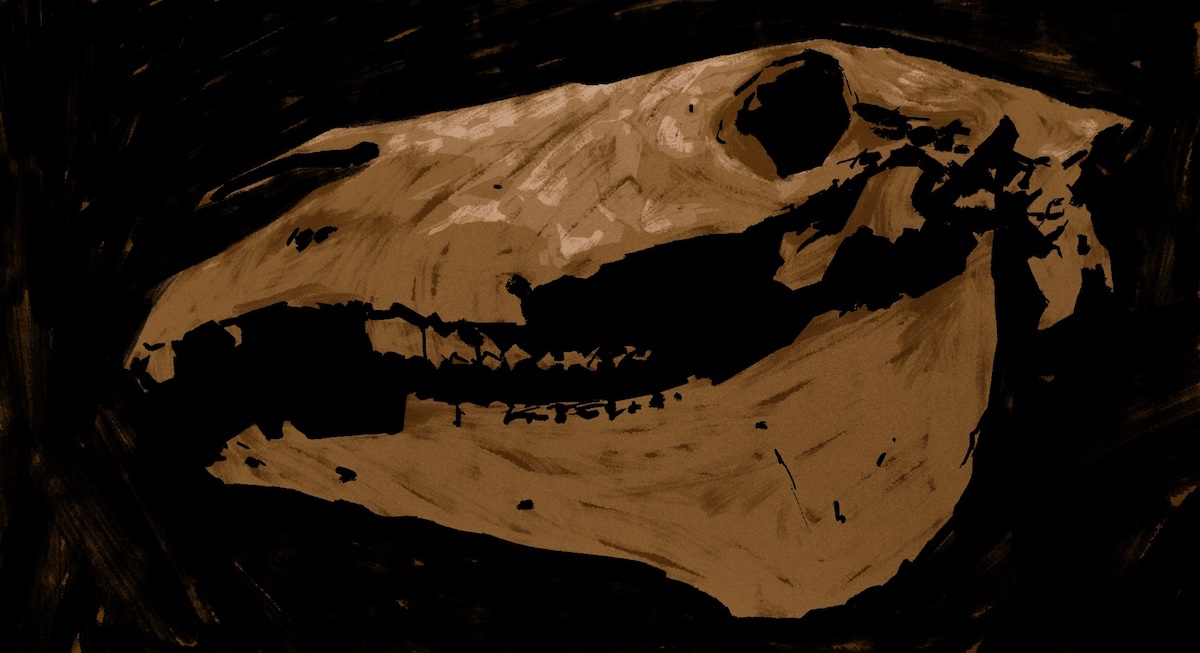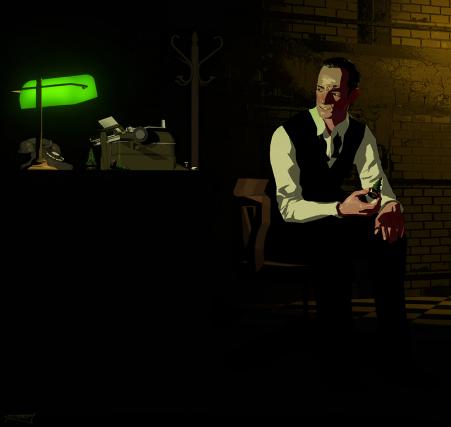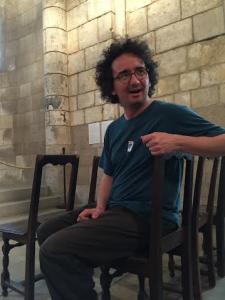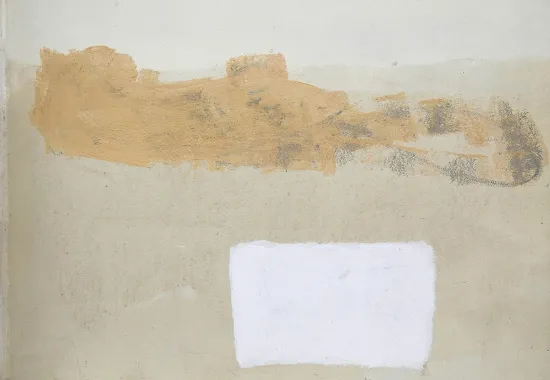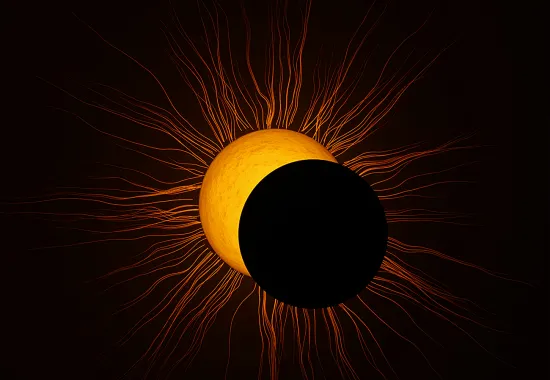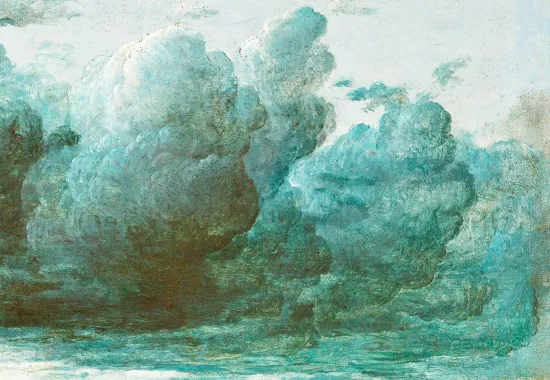Writing Under the Influence
“The purpose of music is to quiet the mind, thus making it susceptible to divine influences.”
¬--John Cage
“Such a night
Such a night
Sweet confusion
Under the moonlight”
--Dr. John
 I become drunk, seduced, and led by the Divine into the dark—a dark where sound is malleable, kissable, collapsible, and dimensional. For this to happen I (as best as I’m able) treat poetry and music as a constant flirtation between the Soul and the Divine. This is my ideal, at least, a recent culmination of reading Kabir, Hadewijch, Julian of Norwich, César Vallejo, and Tomaž Šalamun; of beginning to translate Urmuz and Sesto Pals from Romanian; of listening to Abdullah Ibrahim, Thelonious Monk, Thomas Tallis, Hildegard von Bingen, and Keith Jarrett; of composing songs and playing improvised music alone and with groups; of Shape Note Singing in the Meetinghouse at Sabbathday Lake Shaker Village; of watching the paintings of Lois Dodd, John Walker, Vuillard, and Mary Cassatt; of teaching poetry to children; and of writing my own poems. That’s a lot of disparate beauty, but what connects it is its role in generating surprise—surprise that separates me from myself, if only for a moment. It is in these instances, if I’m lucky, that I glimpse or hear what I believe to be Divine, and surrender myself to it as I separate from my intentions and expectations (as best I can) for the sake of this pleasure.
I become drunk, seduced, and led by the Divine into the dark—a dark where sound is malleable, kissable, collapsible, and dimensional. For this to happen I (as best as I’m able) treat poetry and music as a constant flirtation between the Soul and the Divine. This is my ideal, at least, a recent culmination of reading Kabir, Hadewijch, Julian of Norwich, César Vallejo, and Tomaž Šalamun; of beginning to translate Urmuz and Sesto Pals from Romanian; of listening to Abdullah Ibrahim, Thelonious Monk, Thomas Tallis, Hildegard von Bingen, and Keith Jarrett; of composing songs and playing improvised music alone and with groups; of Shape Note Singing in the Meetinghouse at Sabbathday Lake Shaker Village; of watching the paintings of Lois Dodd, John Walker, Vuillard, and Mary Cassatt; of teaching poetry to children; and of writing my own poems. That’s a lot of disparate beauty, but what connects it is its role in generating surprise—surprise that separates me from myself, if only for a moment. It is in these instances, if I’m lucky, that I glimpse or hear what I believe to be Divine, and surrender myself to it as I separate from my intentions and expectations (as best I can) for the sake of this pleasure.
My life writing poetry mostly has to do with desire—desire to hear, desire to be heard, desire to move and be moved, and desire to be close. To what or to whom? Everything and everyone. To myself. To the Divine. To you. Can I make love to the briars? Can I kiss the rotting porch? Can I whisper a morning glory awake and up my leg? I should be so lucky. I am that lucky. But casual juxtaposition is only fun. In writing poetry, I have the opportunity and responsibility to experience others’ pains and losses as equally as I do their pleasures and gains. I write to remind myself that the root of poetry is potential self-surrender at the service of compassion.
But I am not selfless. I am guilty of hermetic self-absorbsion. It is this awareness, I hope, that propels my poetry inward, elliptically or otherwise, toward language that reflects collective experience. Much of what generates my writing of poems is procedural (Chance procedures, Oulipian constraints, Surrealist games), but I think of this language as a foundation, something with which to hear the music I want to write. My intention, hopefully resulting in Divine flirtation, arises out of redirecting, sculpting, mishearing, and following the light emitted from this text. If poetry is the music of language, it is also the light of language, directing our gazes and leading us through night in the daytime. It is the shade of language that provides solace, etc, etc, infinitum.
I am both a poet and a musician. As if the two were exclusive, I often try (with limited success) to draw analogues between the two. This exercise has long been an effort to separate the two arts most precious to me. On the tail end of weeks of blizzards in the Northeast, I gave my first invited reading, in Bangor, Maine, hosted by the Norumbega Collective. A week before the reading, without a second reader, I was asked if my band would like to play the second half of the allotted time. Not one to turn down a gig, we played a set of original music following the reading. This drew my attention to the differing sorts of architectures I rely on in poetry and music (for example, my resistance to and reliance upon accentual stress, respectively). When I write, I do so with music playing and with several musical instruments within reach. I’m giving the music a chance to find it’s way into poems, but had not seriously considered poetry’s path toward music until that reading.
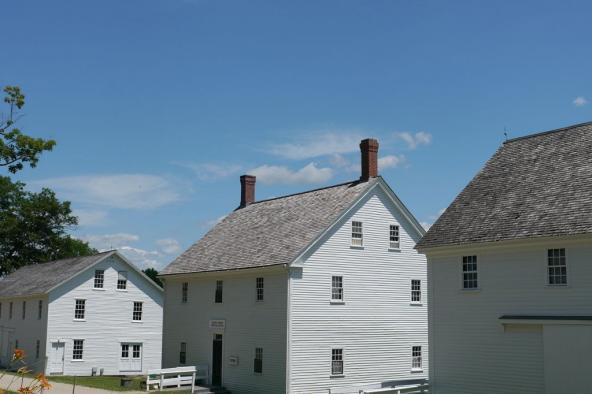
Earlier this month, on a perfectly mild and breezy Maine spring day, I traveled with a friend to sing Shape Note music at Meetinghouse at Sabbathday Lake Shaker village, the last active Shaker Village in the United States. This was my first experience with Shape Note Singing (we sang from the Sacred Harp), but my faith in my friend’s invitation propelled me forward with little more expectation than pleasure. We sang as part of a group of roughly 40 people for nearly three hours, with a 20-minute break after the first 90 minutes. As we moved from one hymn to the next, I began to feel the pulse of each song, the cadence of its lyrics coupled with its poetry, an internal churning I can best call Divine flirtation. As quickly as one song began, it was over, as if the goal were to accumulate this feeling collectively, that instead of dwelling on the pleasure resulting from one union/song, it was best to share as many as we could in the time we had together. I wrote to a poet when I returned home that I thought it was sexy, singing all those devastatingly beautiful hymn together all afternoon. My body resonated for days.
The more my experience of poetry and music remain in union, the more susceptible to the Divine I feel when I participate in or encounter them. So much so that if we hope to be collectively susceptible, it is best we care for that which brings us under its influence. Poetry is one such wine, one such whispered word, one such tempting finger. Quotidian, abstract, lofty, sacred, profane, hermetic, or generous, a poem’s utterance, if it does aid in our seduction of or by the Divine, deserves our utmost care and reckless abandon when we encounter it. Our executions alone are lifeless.
Illustrations by Clay Rodery, an illustrator who lives and works in Brooklyn, New York. Clay’s illustrations have been featured in the North American Review, the most recent was in our bicentennial issue 300.3, Summer 2015.
Recommended
Mercy
Eclipsing
Psychic Numbing


